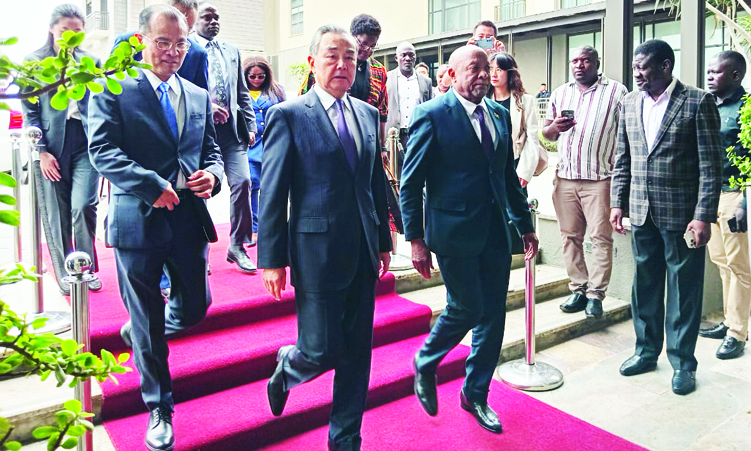It’s no secret that Namibia faces significant challenges in its labour market, with high youth unemployment underscoring the urgent need for targeted solutions.
The Labour Force Survey of 2018 reports that the working-age population (15 years and above) was recorded at 1 090 153 individuals.
Of this number, 725 742 were employed and 364 411 were unemployed, resulting in an overall unemployment rate of 33.4%.
More alarmingly, the youth unemployment rate is 46.1%, highlighting a critical need for intervention from both the government and private sector.
A lack of recent studies on skills mismatch exacerbates the problem, making it difficult to align educational outcomes with market needs.
Media reports have drawn attention to the high number of graduates from various tertiary institutions who find themselves without job opportunities, adding to the swelling ranks of the unemployed.
Many young Namibians possess entrepreneurial ambitions but are hindered by obstacles such as a lack of startup capital, high interest rates and stringent collateral requirements.
These barriers prevent them from turning their ideas into viable businesses that could contribute to the economy and create jobs for others.
WE NEED TO BE PROACTIVE
The government and private sector need to play a proactive role in addressing these issues. Here are some recommended strategies:
- •Relaxation of Financial Policies: The government should consider easing financial regulations to facilitate access to low-interest loans for young entrepreneurs.
This could include creating special funding programmes with more lenient terms and conditions, enabling youths to secure the capital needed to start and grow their businesses.
- •Regional Innovation Hubs: Setting up innovation hubs across various regions can provide youth with platforms to showcase their talent, receive mentorship and access resources essential for business development.
These hubs can serve as incubators for startups, providing a supportive environment that fosters innovation and growth.
- •Education and Skills Development: The ministry of education must ensure that the educational system is aligned with the needs of the emerging job market.
This includes promoting fields of study that are in demand, such as those related to the green hydrogen project – a major focus of the current government involving numerous Western investors.
By equipping our youth with relevant skills and knowledge, they can be better prepared to participate in and benefit from new economic activities.
GREEN HYDROGEN AND THE YOUTH
The Namibian government’s focus on the green hydrogen project presents a unique opportunity for addressing youth unemployment.
By involving young people in this sector, the country can harness their potential to drive innovation and economic growth.
This requires strategic investments in education and training, ensuring that the youth are well-prepared to contribute to and benefit from this burgeoning industry.
THE WEALTH PARADOX
Namibia, blessed with an abundance of natural resources, including extensive mineral deposits, faces the paradox of wealth and poverty.
Despite new mines being discovered and developed, many Namibians continue to struggle with basic needs, including food security.
This disparity underscores the urgent need for sustainable resource management to ensure that local populations benefit directly from the country’s natural wealth.
Namibia’s mining sector is a major contributor to the country’s economy, with significant reserves of diamonds, uranium, gold and other minerals.
However, a large portion of wealth generated from these resources often does not translate into tangible benefits for the broader population.
Many citizens, particularly in rural areas, grapple with poverty and food insecurity, highlighting a critical gap in the distribution of resource-derived wealth.
Let statistics guide us in whatever we plan. If you cannot measure it, you will not be able to manage it.
- * Onesmus Shalonda is a senior statistician: labour in the Namibia Statistics Agency. This article is written solely in his personal capacity; and his ideas are not linked to his employer.
Stay informed with The Namibian – your source for credible journalism. Get in-depth reporting and opinions for
only N$85 a month. Invest in journalism, invest in democracy –
Subscribe Now!








